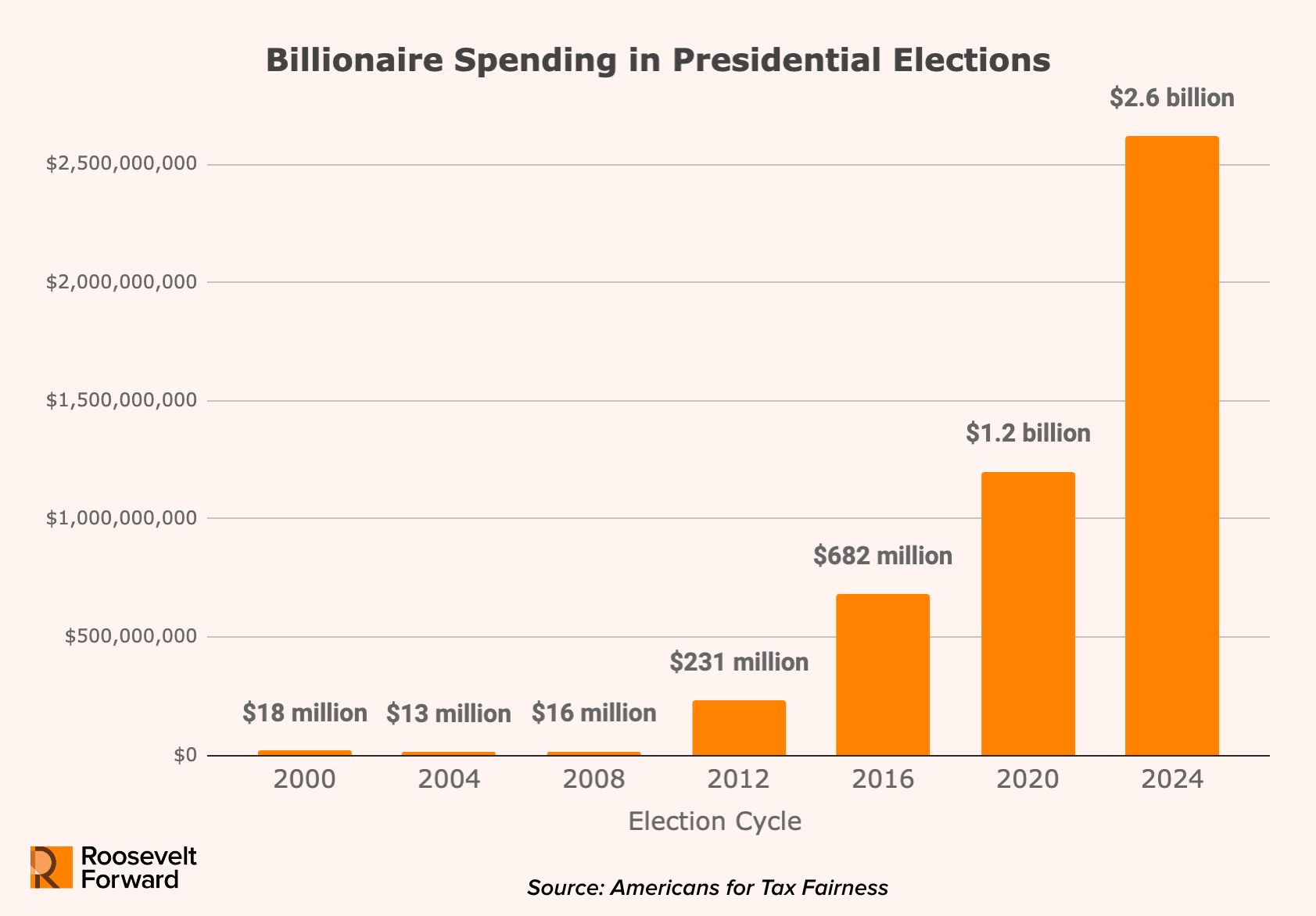The Real Scandal in the Trump-Musk Feud Is Money in Politics
June 6, 2025
By Bilal Baydoun
The spectacular fallout between President Donald Trump and Elon Musk was made for our algorithmic age: Two billionaires lobbing viral insults at each other from the multibillion-dollar platforms they respectively own, while billions of dollars in market value, government contracts, and potential future campaign contributions hang in the balance. Perhaps that is why the feud is already showing signs of cooling. This has always been about money, and money has never exerted more weight on our democracy than it does today.
Mid-tantrum, Musk finally peeled away the veneer of civic duty that once adorned his political image and said what this era makes plain: “Without me, Trump would have lost the election,” he posted on X. “Such ingratitude.”
Musk may not be wrong. Billionaires have never spent more money to sway the outcome of an American election than they did in 2024, with Elon Musk leading the pack with approximately $290 million in support to the Trump campaign. But we’ve crossed a threshold in which billionaires are no longer satisfied with things like favorable regulatory treatment. They expect all three branches of government—indeed, the entire political system—to move as they demand. Musk now openly threatens to oust members of Congress who don’t vote the way he’d like, and has called for the impeachment of judges who don’t rule in his favor. On Thursday, he also floated the possibility of starting and presumably funding a new political party to better meet his demands.
Concentrated economic power inevitably translates into concentrated political power, and billionaires are rapidly getting richer. During the pandemic years—experienced by most people as a once-in-a-century economic and public health emergency—Elon Musk’s wealth increased more than sevenfold. Mark Zuckerberg more than doubled his fortune, and overall billionaire wealth overall increased 88 percent between 2020 and 2024. Absent serious efforts to impose limits on wealth accumulation, this will only accelerate further. Indeed, in its most recent report, Oxfam predicts the emergence of five trillionaires over the next decade. Another sobering estimate by tax expert Bob Lord predicts that, “if policy choices over the next 42 years allow the trend of the past 42 years to continue,” the richest 19 people in the US could increase their share of the nation’s wealth tenfold over the next four decades. Within the century, we could live in a country where fewer than 20 individuals own about 20 percent of the nation’s wealth.
We know where the money will go. An analysis by Americans for Tax Fairness shows the explosive growth of billionaire spending in elections. After the Supreme Court sanctioned virtually unlimited spending in elections through the 2010 Citizens United decision, campaign spending by billionaires in presidential election years increased by 14 times, from $16 million in 2008 to $231 million in 2012. By 2024, this sum had increased well over 100-fold.

We are seeing an age of wealth so concentrated that it threatens to eclipse every form of democratic input—thanks to a system that not only allows wealth to be exercised as political power, but enables such staggering levels of wealth accumulation in the first place. Today it is Elon Musk’s whims determining democratic functions like congressional appropriations and tax enforcement. Four years from now, it may be someone else. Focusing on Musk and Trump’s relationship as singular distracts from this broader rot in the system. As the New Yorker’s Evan Osnos wrote recently, “if Washington pretends that Trump’s corruption is not connected to a deeper imbalance of power, the oligarchs win.” The real scandal in the Trump-Musk fallout is not that their alliance momentarily ended in petty recrimination, but that the system gave Musk that much power to begin with.



